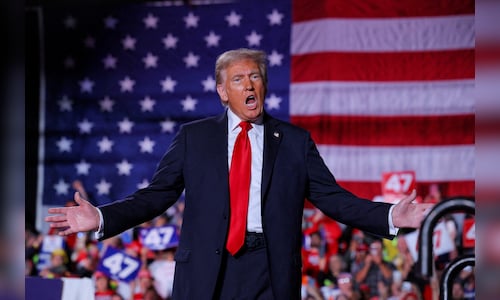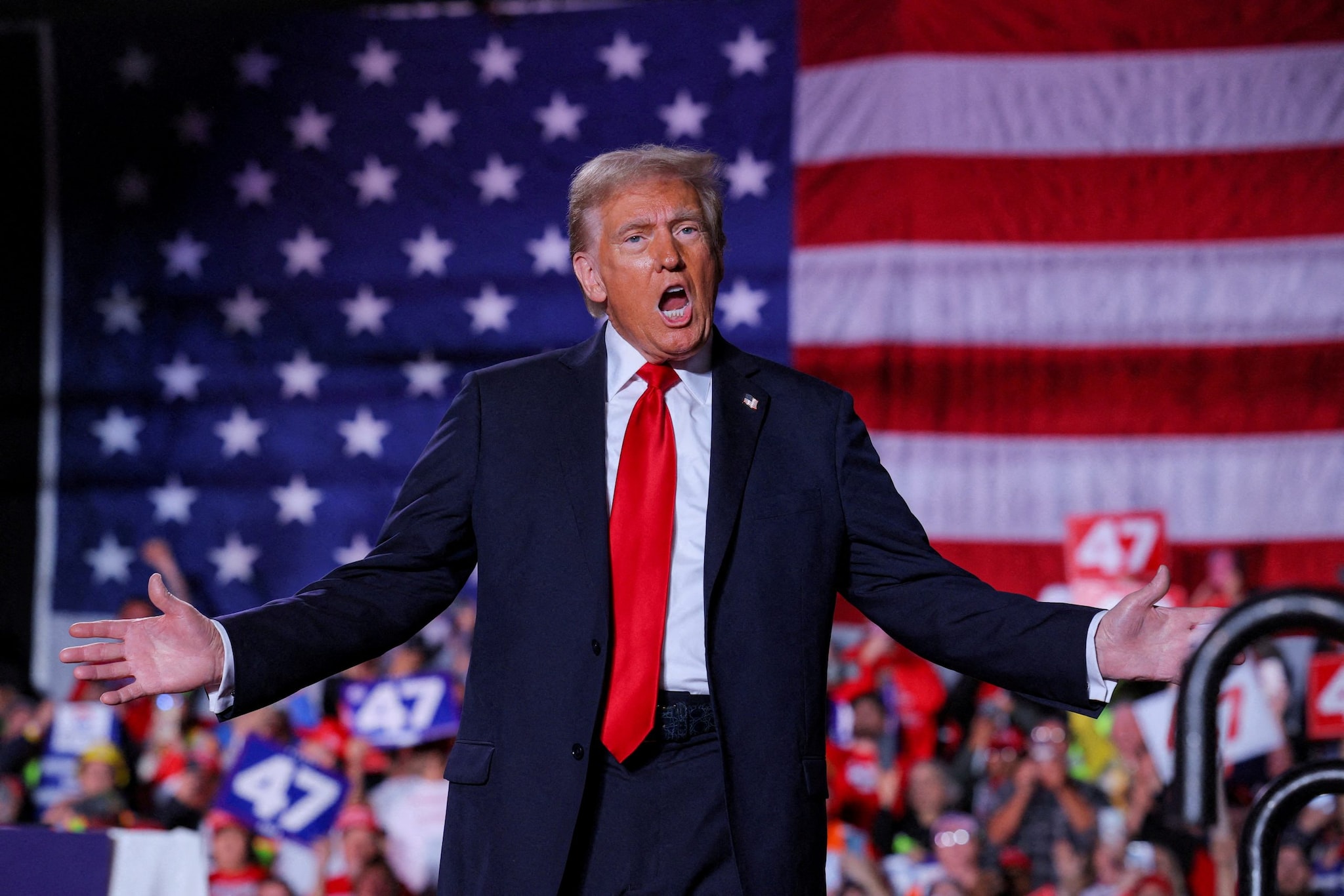

In an interview with CNBC-TV18, Singh pointed to the unpredictable nature of the President-elect’s policies. “At the moment, he’s not really pushing his opponent. He’s pushing his friends and partners,” Singh remarked. He highlighted the case of Canada, a long-time NATO ally, which Trump has recently suggested could become the ’51st state’ of the US. In this context, Singh sees the strong rhetoric as part of Trump’s political play—appealing to his base by presenting a facade of strength while targeting countries that lack the leverage to counter such bold claims.
Trump’s bold, sometimes erratic comments are not new. Singh pointed to the President-elect’s behaviour during his first administration, citing instances where Trump would make tough pronouncements, such as his initial stance on Pakistan and China, only to later soften his position when it suited his political needs. “He gives the pretence of being very strong,” Singh said, noting how Trump’s rhetoric often serves his domestic political interests rather than genuine foreign policy strategy.
While some view this as merely a bargaining tactic, Singh cautioned against dismissing the rhetoric too lightly. He noted that if Trump follows through with these statements, they could challenge long-standing alliances, particularly with NATO countries. For example, Trump’s comments about the Panama Canal and Greenland raise concerns about the stability of US relationships with these regions. Still, Singh emphasised that it’s essential to differentiate between statements and actions. If Trump merely makes inflammatory remarks, the irritation from international partners may remain manageable. However, any concrete steps towards implementing these plans would signal a deeper threat to global relations.
Below are the excerpts of the interview.
Q: What do you make of Donald Trump’s expansionist plans?
Singh: Even in the past, Trump every now and then made some very explosive comments, but has not necessarily followed up on them. Some, of course, he did follow up on. Reports by people who worked closely with him in the first administration point to the fact that he’s been very erratic, unpredictable in his comments, in his decisions. So, we have to certainly watch and note what he’s saying, but it’s better not to get too worked up about every statement that he makes.
If you recall in his first administration, he started by being very tough on Pakistan, saying stop all assistance to Pakistan. And then, when he needed support from Pakistan to do a deal with the Taliban, which he did in 2020, he invited the then-Pakistan Prime Minister Imran Khan to the White House and said, I’m ready to mediate on Kashmir, out of the blue. And he further went on to say that the Indian Prime Minister had asked him to mediate on Kashmir, which is completely not true. So, here is a president of a major country who is not conditioned by facts in policy positions or pronouncements that he makes. So that’s one.
Second, he started by being very tough on China, talking about tariffs and other things, and then went on to do a limited phase one trade agreement with China in January 2020 because he felt that that would work well for him politically in the Midwest states, where China had in-principle committed to buying more farm produce. In contrast, everybody knew that they were not going to do it. So, he’s playing his politics; he’s playing for some negotiating leverage. And so, it’s clear that neither the Canadians want to be the 51st part of the United States, nor will Denmark or Greenland agree to become part of it. But by saying all this, he pretends to be very strong. And that works well with his base, that we now have a strong president who wants to make America strong. So that’s the play at the moment.
Q: Do you think this is just a hard-bargaining tactic? Push your opponent so hard in the negotiation that you get what you want, be it solving the trade deficit issue with Canada, tariffs with India, or the relationship with China as well?
Singh: The only thing here is that, at the moment, he’s not really pushing his opponents. He’s pushing his friends and partners. The Canadians are NATO allies of the US, a G7 partner, and a neighbour with which they have a very good relationship. Denmark is part of NATO. He was talking about the Panama Canal, which is not a very powerful country that does not even have a military. So, at the moment, he’s not even pushing his opponents. He’s pushing his friends, partners, and weaker countries and giving a pretence of strength. If he came out with a strong statement against Russia or a strong statement against China, then people could interpret that he’s taking on his adversaries. So, I think this is just a show of strength so that it appeals to his base. One could argue that by pretending to be strong, he could then try and make deals with Russia, and China. Because if he goes ahead and does deals with Russia and China, people will criticise him as being weak. So, as a President of the United States, he has to show strength in some quarters. So, he shows strength against people who cannot push back against him.
Q: We’ve also been seeing Elon Musk lash out at Keir Starmer, the UK prime minister and the UK government. Do you get a sense, the statements that Elon Musk has made against the UK or the statements made by the Donald Trump administration against Canada about the Panama Canal, about Greenland, about the Gulf of Mexico, do you think these could actually spoil America’s relationship with allies, maybe make them less confident about the relationship with the United States?
Singh: If he only makes pronouncements, they will all be irritated, and they’ll recall Trump 1.0 when he went back and forth and refused to commit to NATO or the Article 5 commitment on coming to the assistance of NATO partners. However, if he does something specific, it will certainly be a major challenge to the transatlantic partnership, even to the NATO alliance structure. So, we have to see what he does.
But there’s another thing at play. Trump himself and Elon Musk certainly are trying to encourage the more right-wing parties, not just in the US and Canada, but also in Europe, because they feel that they are more ideologically inclined towards the kind of politics they bring to the table or the type of politics that Elon Musk wants to encourage, so not just the British or Prime Minister Starmer, but even in Germany, he has come out in support of the extreme right-wing AfD party. So that’s another thing they’re trying to do, is encourage the right-wing parties in Europe who would be more aligned ideologically to Trump and Elon Musk, and see if through that they can pursue not just their political, but also their business interests, because Elon Musk has very strong business interests, certainly in the US, in China, in Europe, and he would like to see how he can use his leverage to get concessions and advantages for himself.
Watch the accompanying video for the entire conversation.



